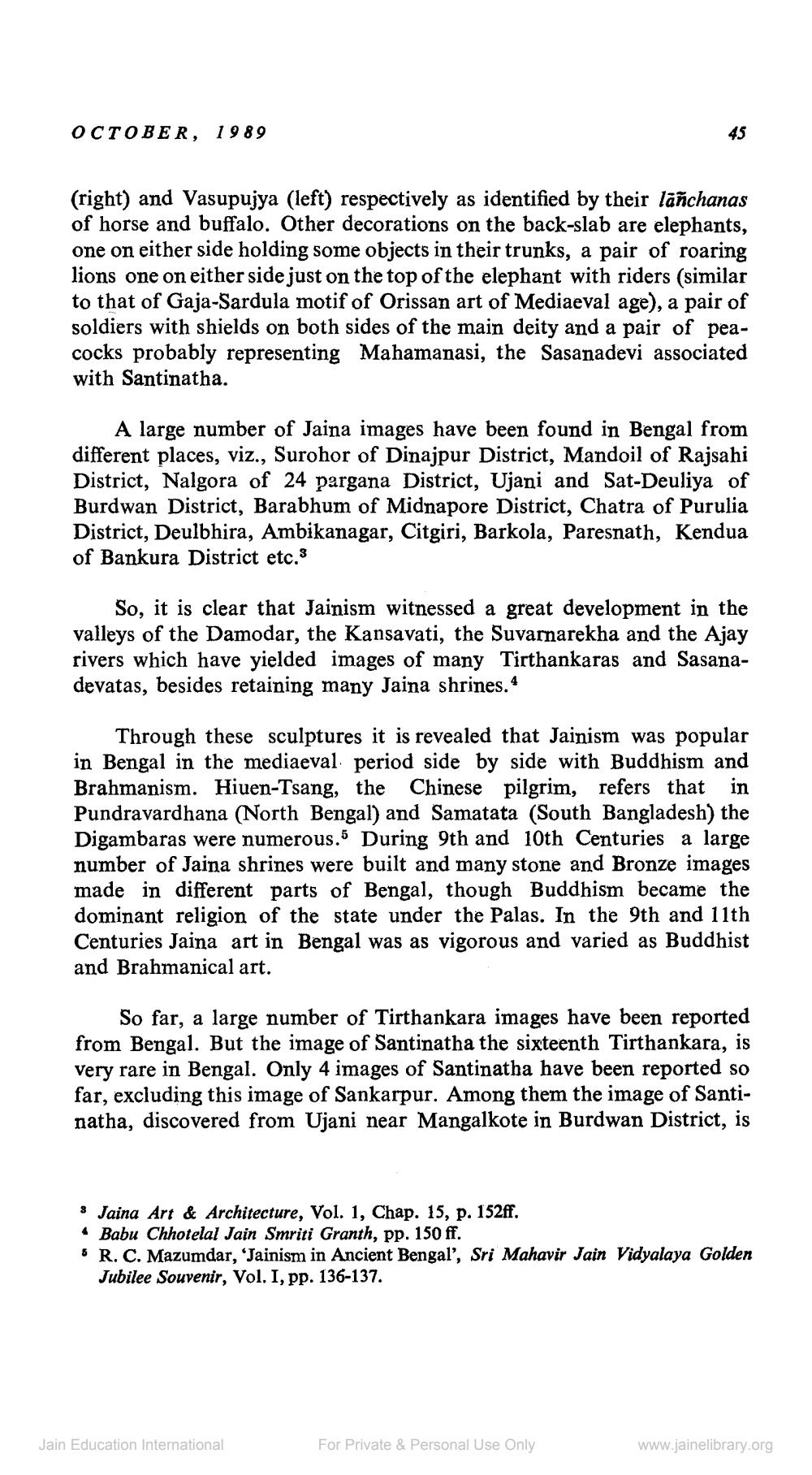________________
OCTOBER, 1989
(right) and Vasupujya (left) respectively as identified by their lanchanas of horse and buffalo. Other decorations on the back-slab are elephants, one on either side holding some objects in their trunks, a pair of roaring lions one on either side just on the top of the elephant with riders (similar to that of Gaja-Sardula motif of Orissan art of Mediaeval age), a pair of soldiers with shields on both sides of the main deity and a pair of peacocks probably representing Mahamanasi, the Sasanadevi associated with Santinatha.
45
A large number of Jaina images have been found in Bengal from different places, viz., Surohor of Dinajpur District, Mandoil of Rajsahi District, Nalgora of 24 pargana District, Ujani and Sat-Deuliya of Burdwan District, Barabhum of Midnapore District, Chatra of Purulia District, Deulbhira, Ambikanagar, Citgiri, Barkola, Paresnath, Kendua of Bankura District etc.3
So, it is clear that Jainism witnessed a great development in the valleys of the Damodar, the Kansavati, the Suvarnarekha and the Ajay rivers which have yielded images of many Tirthankaras and Sasanadevatas, besides retaining many Jaina shrines.*
Through these sculptures it is revealed that Jainism was popular in Bengal in the mediaeval period side by side with Buddhism and Brahmanism. Hiuen-Tsang, the Chinese pilgrim, refers that in Pundravardhana (North Bengal) and Samatata (South Bangladesh) the Digambaras were numerous. During 9th and 10th Centuries a large number of Jaina shrines were built and many stone and Bronze images made in different parts of Bengal, though Buddhism became the dominant religion of the state under the Palas. In the 9th and 11th Centuries Jaina art in Bengal was as vigorous and varied as Buddhist and Brahmanical art.
So far, a large number of Tirthankara images have been reported from Bengal. But the image of Santinatha the sixteenth Tirthankara, is very rare in Bengal. Only 4 images of Santinatha have been reported so far, excluding this image of Sankarpur. Among them the image of Santinatha, discovered from Ujani near Mangalkote in Burdwan District, is
3 Jaina Art & Architecture, Vol. 1, Chap. 15, p. 152ff.
4 Babu Chhotelal Jain Smriti Granth, pp. 150 ff.
• R. C. Mazumdar, 'Jainism in Ancient Bengal', Sri Mahavir Jain Vidyalaya Golden Jubilee Souvenir, Vol. I, pp. 136-137.
Jain Education International
For Private & Personal Use Only
www.jainelibrary.org




